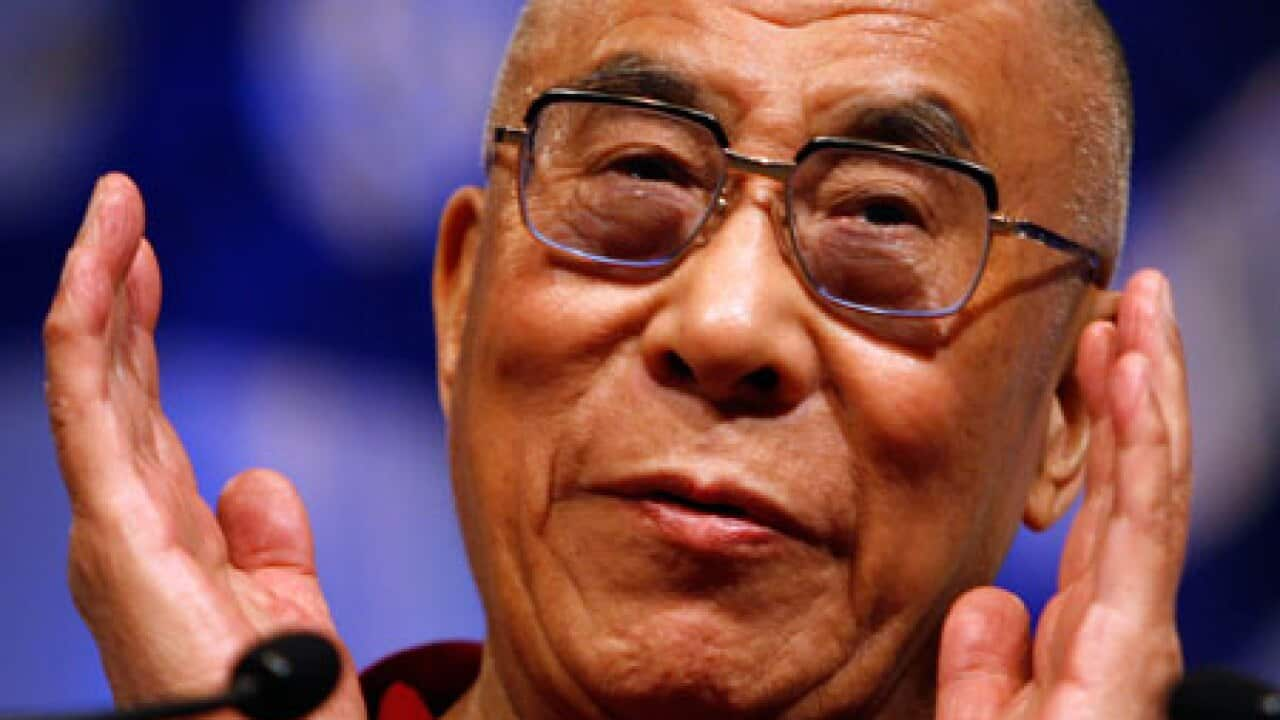Archbishop Desmond Tutu blasted South Africa's government as "disgraceful" and worse than the apartheid regime in a row over a visa for the Dalai Lama, accusing it of caving in to Chinese pressure.
Anti-apartheid crusader Tutu had invited his longtime friend and fellow Nobel Peace laureate to give an inaugural peace lecture as part of Tutu's 80th birthday celebrations in Cape Town this week.
But the Dalai Lama's office said the exiled Tibetan spiritual leader, who was due to leave for South Africa on Thursday, has cancelled the trip because he had not yet received a visa.
In response, Tutu called a nationally televised news conference and lambasted President Jacob Zuma, warning he would pray for the downfall of the ruling African National Congress like he did for the white minority regime.
"When we used to apply for passports from the apartheid government, we never knew until the last moment what the decision was," Tutu said, slamming what he called "mind-blowing" discourtesy.
"Our government is worse than the apartheid government, because at least you were expecting it with the apartheid government," he added.
"Our government, we were expecting that now we would have a government that was sensitive to the sentiments of our constitution."
Tutu said South Africans, who had enjoyed international backing in their struggle against apartheid, should be on the side of other oppressed peoples.
"Tibet is being oppressed. Our government, representing me, representing me!, says it will not support Tibetans who are being oppressed viciously by the Chinese," Tutu said.
"Hey Mr Zuma, you and your government don't represent me. You represent your own interests.
"I am warning you, one day we will start praying for the defeat of the ANC government. You are disgraceful. I want to warn you, you are behaving in a way that is totally at variance with the things for which we stood," he said.
"I am warning you that we will pray as we prayed for the downfall of the apartheid government, we will pray for the downfall of a government that misrepresents us."
South Africa has denied there was any outside pressure on the visa application, and foreign ministry spokesman Clayson Monyela insisted that normal procedures were followed.
"Unfortunately he's decided to pull out of the trip, which is his decision, and we have noted that decision," Monyela said.
But Tutu said: "Clearly, whether they say so or not, they were quite determined that they are not going to do anything that would upset the Chinese."
A spokesman for the Tibetan government-in-exile based in the northern Indian hill town of Dharamshala said Pretoria had acted out of fear of angering China.
"We are very disappointed that a sovereign nation like South Africa would succumb to Chinese pressure. It is a great pity," spokesman Thubten Samphel told AFP.
South Africa denied the Dalai Lama a visa in 2009 and openly admitted it was acting out of deference to Beijing.
But the Dalai Lama had been allowed to visit three times previously, and was personally welcomed by former president Nelson Mandela.
The row has overshadowed Tutu's birthday celebrations, which start with a book launch on Thursday and include a public church service followed by a picnic on his actual birthday on Friday.
"We are looking at available options, one of which might be a video link with the Dalai Lama himself," said Desmond Tutu Peace Trust chairperson Dumisa Ntsebeza about plans for the lecture.
China has always sought to curb the Dalai Lama's overseas travels, warning host governments that any visit would harm bilateral ties, especially if he was met by state officials.
"Wherever His Holiness goes, they make an attempt to block his visit," said Dalai Lama spokesman Tempa Tsering.
Announcing the cancellation, the Dalai Lama's office said the Tibetan leader had no wish "to create any inconveniences to anyone, individuals or governments".
South African Deputy President Kgalema Motlanthe last week made a four-day visit to China, where he signed a series of trade deals but made no mention of the visa issue.
The Dalai Lama has lived in exile in India since 1959 when he fled an abortive uprising against Chinese rule in Tibet.

